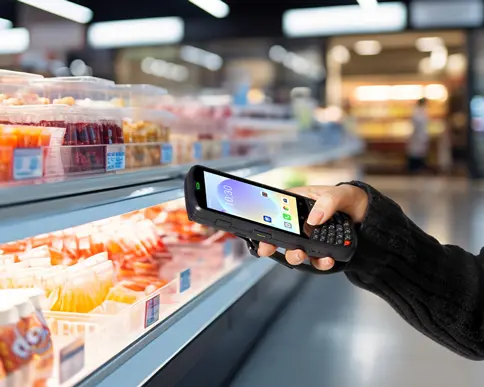Brief Introduction
With continuous technological advancements, a wide variety of mobile computers have flooded the market, making it a pressing challenge for many business managers and purchasers to identify the best fit for their needs. Today, we provide a five-scenario compatibility guide to help you choose the most suitable mobile computers.

1. Logistics & Transportation
In logistics and transportation, mobile computers are primarily used for warehouse management, shipment tracking, and inventory counting. When selecting mobile computers, durability and drop resistance should be top priorities, as warehouse environments often involve rough handling. Additionally, battery life is critical—long-lasting performance without frequent charging can significantly boost efficiency.
- Durability & Design: Opt for mobile computers with dustproof, waterproof, and shockproof features (e.g., IP65/IP67-rated devices) to withstand harsh conditions. Ergonomic design also matters—lightweight and comfortable grips reduce fatigue during prolonged use.
- Software Compatibility: Ensure seamless integration with logistics management systems (e.g., inventory tracking, dispatch software). Open OS options like Android or Windows allow greater flexibility for custom apps.
2. Retail Industry
In retail, mobile computers are widely used for sales management, product lookup, and inventory control. Portability, ease of use, and payment capabilities are key factors here.
- Portability & Weight: Compact, lightweight mobile computers (pocket-sized or belt-clip models) are ideal for staff constantly moving between customers and stock.
- User-Friendly Interface: Intuitive touchscreens with fast response times streamline operations and enhance customer service.
- Payment & Scanning: NFC and barcode scanning support cashless transactions, speeding up checkouts and accommodating diverse payment preferences.
3. Manufacturing
Manufacturing increasingly relies on mobile computers for product traceability, equipment maintenance, and workflow optimization. The right mobile computers can support lean production.
- Data Recording & Analysis: Choose mobile computers with fast data entry and real-time monitoring to enhance production line efficiency.
- Task Management: Built-in task management software enables paperless work assignments, progress tracking, and instant issue reporting for better coordination.
4. Healthcare
In healthcare, mobile computers are used for patient records, medication verification, and e-prescriptions. Stability, data security, and portability are vital.
- Data Security: Prioritize devices with encryption and biometric authentication (e.g., fingerprint/facial recognition) to protect sensitive patient data.
- Medical Software Integration: Preloaded healthcare apps streamline patient registration, medication management, and lab report generation.
- Portability & Hygiene: Lightweight, easy-to-clean mobile computers are essential for clinicians moving between wards, and durability ensures compliance with hospital sanitation standards.
5. Field Service
Field service sectors (utilities, construction, etc.) use mobile computers for data collection, troubleshooting, and customer support. Reliability, connectivity, and multifunctionality are critical.
- Ruggedness & Stability: High-performance mobile computers resistant to extreme weather prevent data loss and ensure uninterrupted operations.
- Multifunctionality: Cameras, microphones, GPS, and other features enable efficient data capture, photo documentation, and location tracking.
- The Critical Role of Mobile Computers in Warehouse Logistics2025-06-25
- Seuic Mobile Computers: Multi-Scenario Efficiency Solutions2025-06-24
- Operation Guide and Industry Applications of Seuic Mobile Computers2025-06-23
- How to Choose Mobile Computers for Your Industry Needs2025-06-20
- Mobile Computers: The All-in-One Tool from Data Collection to Industry Implementation2025-06-19